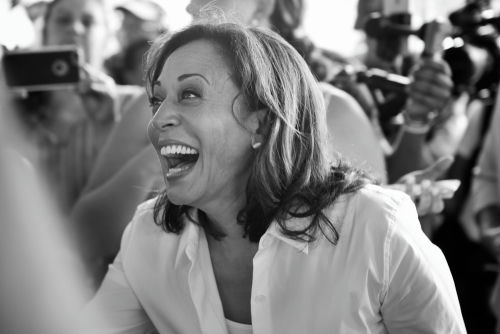As Los Angeles faces a surge in crime, city leaders have pulled elite LAPD Metro Division officers off critical crime suppression duties to provide personal security for former Vice President Kamala Harris—a move that has many asking if public safety is once again taking a back seat to political privilege.
Elite LAPD Officers Pulled from Crime Suppression for Harris Protection
Following the Trump administration’s revocation of Kamala Harris’s Secret Service protection in June 2025, Los Angeles Police Department’s Metro Division and the California Highway Patrol began providing her security in early September. The Metro Division, known for tackling the city’s toughest crime and high-risk operations, has been forced to reassign officers from their core mission—leaving community members to question how local safety can be maintained when specialized units are taken off the streets to guard political figures. This redeployment has drawn significant concern from law enforcement professionals and the public alike.
The decision to revoke Harris’s federal protection aligns with standard Secret Service protocols, which typically provide former vice presidents with security for six months after leaving office unless extended by executive order. President Biden had previously granted such an extension; however, the Trump administration reversed this, prompting local authorities to fill the gap. While the LAPD and CHP have confirmed their involvement, operational details remain closely guarded for security reasons. The rare use of local police for ongoing protection of a former federal official highlights the tension between federal decisions and local resource allocation.
Operational and Public Safety Implications for Los Angeles
The Metro Division is a vital asset for Los Angeles, routinely tasked with suppressing violent crime, responding to emergencies, and conducting high-risk operations. Reassigning these officers for private protection duties introduces clear operational risks: response times may increase, ongoing investigations could be delayed, and communities—particularly those in high-crime neighborhoods—may see a reduction in police presence. Security experts and policing analysts warn that diverting elite units from their primary roles undermines the department’s ability to address persistent crime and maintain public order. For residents already frustrated by years of rising crime and government overreach, this move feels like another example of political priorities outweighing common-sense public safety.
The financial and morale costs are significant as well. Providing round-the-clock protection to a high-profile former official demands overtime, specialized training, and advanced logistics. These resource drains can impact officer morale, stretch already tight budgets, and create a precedent where local agencies are expected to step in whenever federal authorities step back. City officials and law enforcement leaders remain under scrutiny from both taxpayers and rank-and-file officers, who see their crime-fighting mission diluted by politically driven assignments. The lack of transparency regarding how long this arrangement will continue only adds to public unease.
Federal Policy Decisions and Local Fallout
This situation exposes the broader consequences of shifting federal policies onto local governments. Under the Trump administration, Secret Service protection reverted to the long-standing six-month limit, ending the Biden-era extension for Harris. While some argue that Harris’s safety justifies extraordinary measures, others point out that local taxpayers are now footing the bill for what is typically a federal responsibility. The use of elite police for private protection, especially for a figure as controversial as Harris, has fueled debate over the proper boundaries between local and federal authority. Political tensions have escalated as city leaders try to balance constitutional obligations, fiscal responsibility, and the basic expectation that public safety resources should serve the community first.
Rather than paying for their own security, which @KamalaHarris can easily afford, they are pulling 14 cops from service stopping and investigating crime in LA. Why are LA taxpayers standing for this? @MayorBass needs to explain.https://t.co/6C04et7fxp pic.twitter.com/KFnMQ4rdZd
— Mimzy Borogroves No DM's (@MBorogroves) September 4, 2025
Security experts, policing scholars, and residents are unified in their call for a return to common sense: specialized law enforcement units should not be diverted from their core mission of crime suppression. As Los Angeles grapples with persistent crime and resource challenges, the precedent set by this case raises important questions. Will other cities be forced to make similar sacrifices if federal protection is withdrawn from political figures in the future? For now, the people of Los Angeles are left to wonder whether their own safety is being compromised for the sake of political expedience. Limited data is available on the long-term effects, but one reality is clear—public trust hangs in the balance, and the stakes could not be higher for both law enforcement and the citizens they serve.
Sources:
LA Times: LAPD, sheriff’s department face challenges amid immigration protests

